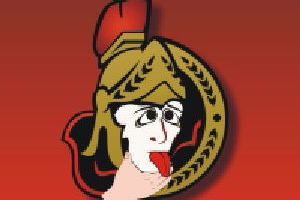Rethinking the jinx
 Calgary has the Red Mile, a name given to a stretch of 17th Avenue along which Calgary fans celebrated the Flames' Stanley Cup run during the 2004 season. Edmonton has the Copper kilometre, a stretch of road along Whyte Avenue honouring the Oilers 2006 playoff run. Not to be outdone, during the 2006-2007 hockey playoffs, a stretch along Ottawa's Elgin Street would come to be known as the Sens Mile in honour of the Ottawa Senators.
Calgary has the Red Mile, a name given to a stretch of 17th Avenue along which Calgary fans celebrated the Flames' Stanley Cup run during the 2004 season. Edmonton has the Copper kilometre, a stretch of road along Whyte Avenue honouring the Oilers 2006 playoff run. Not to be outdone, during the 2006-2007 hockey playoffs, a stretch along Ottawa's Elgin Street would come to be known as the Sens Mile in honour of the Ottawa Senators.
In light of the 2011 Vancouver riot which erupted following the Canucks loss to the Boston Bruins in game seven of the Stanley Cup finals, there probably is some rationale in encouraging Puckheads to confine their hooliganism to a single confined area.
In anticipation of a favourable playoff performance, College Ward Councillor Rick Chiarelli put forth a motion calling for Council to instruct City staff to install Ottawa Senators decorative signage along Elgin Street, even though the playoffs have not yet started. Chiarelli's motion, which had the unanimous support of Ottawa City Council, noted that since the City has formally recognized Elgin Street as the Sens Mile, and in light of the team's recent winning streak, it would be appropriate for the City to demonstrate their support for the team.
Of course Chiarelli's enthusiasm, and that of Council, was not shared by the team. According to a CBC report, Ottawa Senator's president Cyril Leeder sent a letter to Mayor Jim Watson requesting "that council reconsider/defer [the] motion until the appropriate time". Naturally, local media was saturated with stories about how breaking from tradition with the premature decoration of the Sens Mile would surely jinx the team.
I can't help but wonder how many of Ottawa's journalists have been playing hockey without a helmet. Given the lack of attention given to Canada's impending intervention into Syria, I'm gobsmacked by the media's obsequious focus on the jinxing of a hockey team. It's hardly worth discussing Mulcair's interrogation of the government and the international law implications of the Syrian intervention, what with incontrovertible hard science of a jinx! (Only the casual observer will note that intervention is the current politically correct term used to describe the act of bombing the shit out of a sovereign nation. But what the fuck, eh? It's only Syria, right?)
In an attempt to appease the jinx pundits, I feel compelled to ask a couple of incredibly innocent questions. If the City's move to decorate Elgin Street prior to the playoffs would jinx the team because it breaks with tradition, why then, did the Senators submit a proposal to relocate the team to LeBreton Flats? If installing a few signs along Elgin Street would put a huge spike through the team's heart, then it must surely follow that relocating the team from their current home in Kanata would mean a fate worse than the Curse of the Bambino! Or, when it comes to grown men hitting a small piece of hard rubber with sticks, is the probability of a jinx inversely proportional to the square of the amount of public money being pissed away?
As you may have gathered, I'm not a hockey fan. Or, better put, I'm not a fan of so-called "professional" sports. I have the same moral objection to the funding of professional sports with public monies as I would if millions were spent handing over big bags of weed to potheads. Interestingly enough, I believe it's possible to reconcile my concerns over public monies and the Puckhead's concerns over jinxing the team. Consider this:
The Sens Mile, as noted above, emerged during the 2006-07 hockey season. Prior to its creation, the Ottawa Senators had won six Stanley Cups. After its creation: bahbu, bupkis, dick, diddly, jack, nada, zero, zilch, zippo! It would seem to me that it's the Sens Mile itself which appears to have jinxed the team, and it's doing a damned fine job too! Of course the solution is simple: you get rid of the Sens Mile, you end the jinx. As for the saving of public monies through the elimiation of the Sens Mile? It's just a fortunate consequence of promoting the team's success.
Submitted by Vincent Pachinskie, 28 March 2015